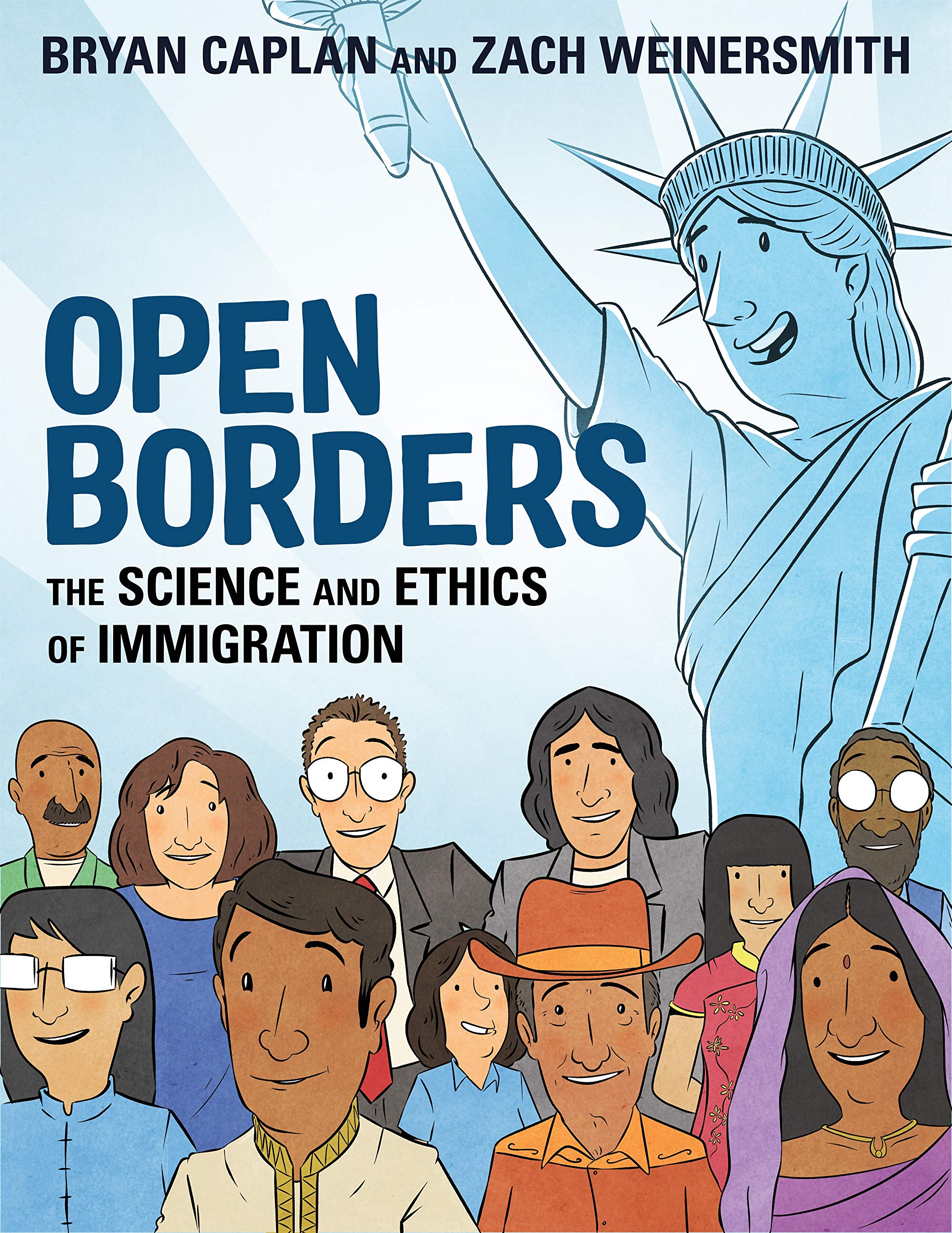How Open Borders Measures Up

Ten years ago, I published "Seven Guidelines for Writing Worthy Non- Fiction." Since my new Open Borders: The Science and Ethics of Immigration (co-authored with Zach Weinersmith) releases tomorrow, I decided to re-read my guidelines and do some soul-searching. Here are my guidelines - and my self-evaluation.
1. Pick an important topic. Immigration restrictions deprive billions of their basic rights to live and work where they like, and vastly decrease the wealth of the world. So the great importance of my topic is not in doubt.
2. Learn a lot about your topic. I 've been blogging research and arguments about immigration for over fifteen years. The book has about three hundred references. Nor have I kept myself in a pro-immigration Bubble. I've done many formal debates on immigration, not to mention face-to-face arguments and social media. I am personally close with several smart people who oppose even existing levels of immigration, including my own father.
3. Keep telling yourself: “Once I perfect the organization of my book, it will practically write itself.” This guideline served me well. Open Borders has an introductory chapter, followed by four chapters on the leading arguments against open borders - native impoverishment, fiscal burden, cultural harm, political danger. Then there are chapters on keyhole solutions, philosophical consilience, and how to get from here to three. The end.
4. Never preach to the choir. I give myself stellar marks here. Four full chapters are devoted to counter-arguments, including a lengthy discussion of immigration's effect on national IQ. And I try to sell the conclusion to not just fellow libertarians, but utilitarians, egalitarians, wealth-maximizers, meritocrats, Kantians, Christians, and even citizenists. I reach out to Democrats and Republicans, liberals and conservatives. Readers who know nothing else about me can probably correctly infer a lot about my broader perspective, but at least they're have to make an effort. Indeed, some readers will probably just think of me as "an economist."
5. When in doubt, write like Hemingway. The graphic novel format makes this especially easy, because the right picture really is worth a thousand words. This isn 't one of those graphic novels where two stick figures just converse with each other; I strive to make even panel visually intriguing.
6. Treat specific intellectual opponents with respect, in print and otherwise, even if they don’t reciprocate. Zach Weinersmith was a little worried that I beat up too severely on Milton Friedman for his “You cannot simultaneously have free immigration and a welfare state” line. Yet my respect for the man remains obvious. I doubt even Mark Krikorian will object to how we depicted him.
7. Don’t keep your cards close to your chest. My position 's right in the title. Almost no one will leave wondering, "What does the author really think? " Still, I have heard there's a conspiracy theory floating around that I'm a crypto-restrictionist trying to discredit the cause of liberalization with my extremism. Strangely, though, no one is campaigning to give me a Best Actor Oscar…
I know, of course, that self-serving bias is a severe human problem. Even if I'm absurdly generous to myself, though, my co-author Zach Weinersmith incontrovertibly did a wonderful job of bringing my vision to life with his eye-popping illustrations. And while I wrote at least 95% of the words, he definitely added some great jokes!
The post How Open Borders Measures Up appeared first on Econlib.
作者暂无likerid, 赞赏暂由本网站代持,当作者有likerid后会全部转账给作者(我们会尽力而为)。Tips: Until now, everytime you want to store your article, we will help you store it in Filecoin network. In the future, you can store it in Filecoin network using your own filecoin.
Support author:
Author's Filecoin address:
Or you can use Likecoin to support author: